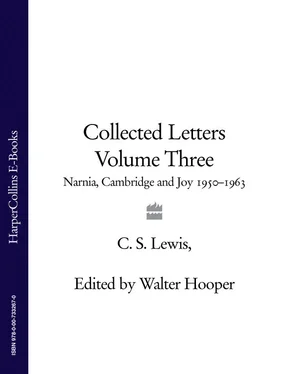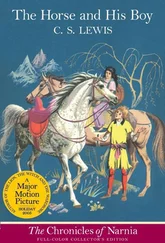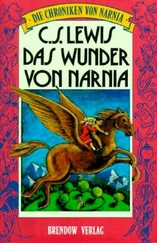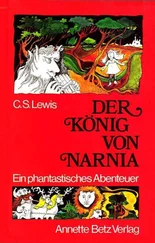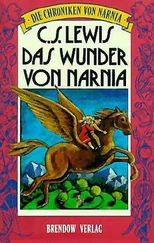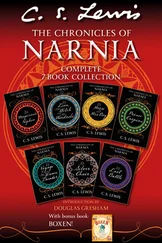My feeling is that the more vast and supersensible a poem’s subject is, the more it needs to be fixed, founded, incarnated in regular metre and concrete images. Thus I is, for me, the worst. Ill is better: the line about the candle in God’s window, the best thing in it. But they are not my sort of poetry. You won’t take this too seriously: they might well suit some other reader. I can’t tell you how I wish I could write something more encouraging: but between Christians the truth must be spoken.
With all good wishes.
Yours sincerely
C. S. Lewis
TO MONSIGNOR FERDINAND VANDRY (WHL): 121
[Magdalen College
? June 1952]
Dear Monsignor Vandry,
Please accept my sincere thanks for the great and unexpected honour offered me in your letter. I do not know whether in order to receive it, I must be present before the Special Convocation on September 22nd. If that is necessary then I am compelled, with great regret and undiminished gratitude, to refuse the Doctorate since my other engagements make it quite impossible for me to visit Quebec in September.
Even if it is possible for me to receive the degree in absence, the question remains whether that would be held to imply any disrespect for Convocation or any insensibility to the great favour you are showing me. Naturally I would rather lose it than receive it under conditions which the University might consider as ungracious on my part.
I await your kind advice on these points.
Whatever the decision may be, I shall retain a vivid sense of the University’s kindness.
Please convey to all concerned my most respectful and obliged greetings.
TO GENIA GOELZ ( L /P):
Magdalen College,
Oxford.
20 June 1952
Dear Genia
Thanks for yours of the 10th. I would prefer to combat the ‘I’m special’ feeling not by the thought ‘I’m no more special than anyone else’ but by the feeling ‘Everyone is as special as me.’ In one way there is no difference, I grant, for both remove the speciality. But there is a difference in another way. The first might lead you to think, ‘I’m only one of the crowd like anyone else’. But the second leads to the truth that there isn’t any crowd. No one is like anyone else. All are ‘members’ (organs) in the Body of Christ. 122 All different and all necessary to the whole and to one another: each loved by God individually, as if it were the only creature in existence. Otherwise you might get the idea that God is like the government which can only deal with the people in the mass.
About confession, I take it that the view of our Church is that everyone may use it but none is obliged to. I don’t doubt that the Holy Spirit guides your decisions from within when you make them with the intention of pleasing God. The error wd. be to think that He speaks only within whereas, in reality, He speaks also through Scripture, the Church, Christian friends, books etc.
I haven’t written more than two nonsense poems 123 (I enclose the other) but I know my Just So stories. 124
God bless you.
C. S. Lewis
Travellers! In months without an R Beware the woods of Wongomar , For then the resident bumble-bear Booms all day through the thicket there . Its face is round, as is its rump , Its tail is a preposterous stump . Its eyes are shut, its whiskers dense , It lives on butterscotch and bats And lines its nest with bowler hats (Arranged in a volmonic 125 plan) . It cannot talk, but thinks it can , And there it bumbles, there it hums , It knocks you down: it rubs its eyes Intending to apologise . But when it sees it’s laid you flat It takes offence and steals your hat .
TO ARTHUR GREEVES (BOD):
Magdalen College,
Oxford.
June 22nd 1952
My dear Arthur
I shall be free to be with you from Sat. Aug. 23rd till Mon. Sept. 8th when I sail for L’pool. These dates cannot be changed but if you like to spend all or any of this time motoring me about Ireland, I shd. like it v. much and will fall in with any dates (between those two) or any itinerary you choose. Just us two, of course: I wouldn’t face any third. * You and I know the worst about each other by now! I look forward to it immensely.
Yours
Jack
P.S. But I’d forgotten. My room at the C’burn Inn is already booked for that period. I’m afraid I couldn’t manage to pay it and other ones as well. Can you decide on your dates at once & then see if the Inn will cancel my room for the period of our tour without charging? If not , then I’d better stick to my original plan & you take your motor trip after I’ve gone. But I hope not. I shall be a little anxious till I hear from you again.
P.P.S. No sharing a room: but you’d hate it as much as I, so I’m safe!
TO WILLIAM BORST (P):
Magdalen College,
Oxford.
June 22nd 1952
Dear Mr. Borst (or shall we stop mistering one another? Let’s)
Dear Borst,
Thanks for your most indulgent letter of the 17th which lifts a load from my mind. It occurs to me that the typist may understand perfectly easily the instructions that baffled me: if so, you shall get the MS. in the form you want. If she is as stupid as I (a pessimistic hypothesis) I shall avail myself of your concession.
I’ve finished the introduction wh. seemed to write itself, so that I could hardly keep up with it. If it is as good as it seems to me at the moment it’s a corker: but of course things never are. You will find one or two allusions in it that your students will not quite understand, but these have been left in on purpose. If they are too carefully shielded from the rumour of worlds they have not yet broken into, what will ever drive them on. Now I shall get on with the scissors and paste work. At the end of the first day everything in the room (except the bits of Spenser, perhaps) will be pasted to everything else. All will be in the most literal sense CO-HERENT. But no palm without paste.
Yours
C. S. Lewis
Interim Report 126
I merveill much that critiques doe complaine
Of bookes with scisers and with past compyld;
Certes who weenes this is a lesser payne
Then free invention is sore beguyld!
Witness myself who with sic labour vyld
Am oft so dased that I half repent
This great emprise, my fingers all defyld
With slimie stickphast foule and feculent
And deeme Dan Spenser self an easier journie went.
C. S. Lewis
TO RHONA BODLE (BOD): 127
Magdalen College,
Oxford.
June 22nd 1952
Dear Miss Bodle
It was a great joy to hear from you again. You have been daily in my prayers for a long time and, needless to say, will remain. I shall be grateful for a place in yours.
The work you are engaged in is a magnificent one (much in my mind because, as it falls out, I’ve just been reading Helen Keller’s book): 128 hard, no doubt, but you can never be attacked by the suspicion that it is not worth doing. There are jolly few professions of which we can say that. The translation of great stories into a limited vocabulary will, incidentally, be a wonderful discipline: you will learn a lot about thought and language in general before you are done. I hope you will sometimes let me know how you get on. God bless you.
Yours most sincerely
C. S. Lewis
TO ROGER IANCELYN GREEN (BOD):
As from Magdalen
June 23rd 1952
My dear Roger
Shortly after you left me I took up From the World’s End 129 one night and re-read it: finding it so much better than I had remembered, or perhaps, perceived, that I think I ought to tell you so. The original reading must have caught me in an imperceptive mood. There are, as you yourself wd. now feel, one or two places where one can ‘see the works’, perceive you deliberately concocting an atmosphere—but they are few and once the main story (which hangs together v. well) takes hold they vanish.
Читать дальше
